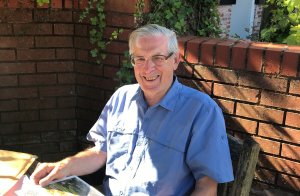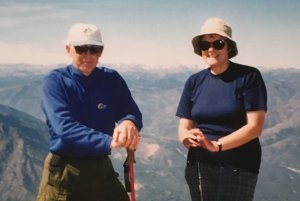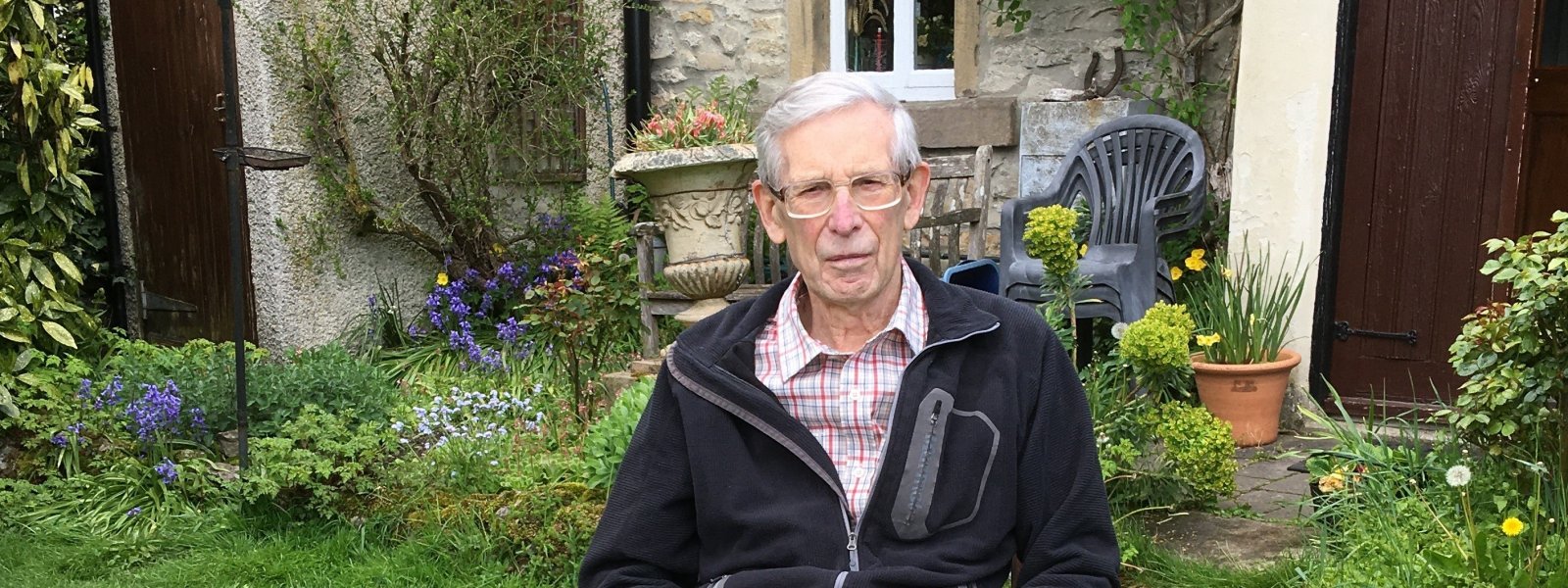Walking on
At 82, Malcolm Fordyce from Derbyshire had a lot to consider when he was offered a pulmonary endarterectomy following a diagnosis of Chronic Thromboembolic Pulmonary Hypertension (CTEPH). Ten weeks after his surgery, he spoke about his journey.
“It all started in December 2019, when I was leading a walk in the Peak District and found myself really breathless and quite unable to climb up a hill. We had always done a lot of walking, including walking holidays abroad, and so this was quite a shock.
I saw a GP several times, but it wasn’t terribly conclusive – and in retrospect, I understand how difficult PH can be to identify.
In March 2020, I had a violent reaction to some medication I’d been put on and ended up in the emergency department of my local hospital, where I was seen by cardiologists who prescribed a different medication. After several months and various tests, it was obvious that I was getting worse and I was referred to the specialist centre at the Royal Hallamshire in Sheffield.
I went for what I thought would be a day visit, but after multiple tests I ended up staying there for nine days. I was given a diagnosis of CTEPH and told I might be a candidate for a pulmonary endarterectomy (PEA). I clearly remember the consultant making a sketch of the details of the operation – which I still have – and my initial reaction was ‘I don’t think I like the idea of that’. I was discharged to consider my options.

Royal Papworth [the only hospital that performs the PEA operation] rang me very quickly and an appointment was made to meet the surgeon, Mr Jenkins, on New Year’s Eve.
I was told that I wouldn’t need to make a decision at this meeting, but that I could go home and discuss it with my family. I was sent lots of information about all aspects of the operation and had an hour’s telephone call with one of the PEA nurses which was extremely helpful. I was told that I should phone them at any time if I had any questions.
I was very much in two minds at first. I felt I would be going into a completely unknown situation and a big concern was how I might feel when I came through it. I had only been in hospital once in my life, in 1957, and I had never had a general anaesthetic.
Making a decision
I discussed it at length with my wife, Sue and our two daughters. They had concerns and lots of questions, but they could see that I was struggling more and more with my breathing and definitely getting worse.
Eventually, we decided that if Mr Jenkins told me I was a candidate for surgery, I would say yes there and then as I didn’t want to waste any more time. There was a sense of relief that the decision had been made.
We left at 5am on a frozen morning to get down to Cambridge. Before meeting Mr Jenkins, my wife and I had an hour’s session with another PEA nurse which was very useful and encouraging. Then we had a long chat with Mr Jenkins. The risks of the operation were made very clear. But he said that treatment with medication was not an option and without the operation my future would be a slow degeneration. At some point, it would culminate in heart failure.
I said that I definitely wanted to go ahead with the operation, but because of the COVID-19 situation at the time it was not possible to schedule a date. It was a case of waiting.
The waiting seemed long but, eventually, in mid-March, I had a call inviting me for surgery the following month. I was really pleased that things were moving ahead.
Looking to the future
The operation was a success and cleared the blood clots. I was sent a photograph of what was taken out and it looked very strange, a lot like scrambled egg.
Nobody knows why I had the clots, but I feel very fortunate to have reached 82 without health problems and I also feel very fortunate that I am able to recover from this.
It will be six months before I am fully recovered, and my aim then is to get back to walking reasonable distances. My days of going up mountains are just memories now, as I certainly understand that one must be very careful about not pushing the body too much – but I would like to get back to walks of at least five miles.
At the moment, I am feeling so much better and just to be able to get up and walk into the garden or do circuits around the village is a pleasure. My quality of life is considerably better now, even after only ten weeks.
My advice to someone else facing the same decision about surgery is to listen very carefully to everything you are told and take your time to weigh it up.
These last months have been an extraordinary journey and have given me a much greater appreciation of how fortunate we are to have the NHS. Amid the pressures and problems of COVID-19, the care that I was given by all the staff, in many different roles, was outstanding – and I am so grateful.
I would especially wish to thank Mr David Jenkins and his team at the Royal Papworth and Dr Robin Condliffe at the Royal Hallamshire.
“I tried really hard not to think about the risks”
Malcolm’s wife Sue has supported him through diagnosis, surgery, and his ongoing recovery. The couple have been married for 57 years and she helped him come to a decision about the procedure.

“Neither of us were sure about the operation at first. But we could see things were getting worse for Malcolm.
He doesn’t like hospitals, even visiting others there, so the thought of having a major operation was quite daunting. But by the time we went to see Mr Jenkins, Malcolm had definitely made up his mind. After a year of not being able to do very much, and knowing he was getting worse, there was really no choice.
I had watched Mr Jenkins perform a PEA on a television documentary [‘Surgeons: At the Edge of Life’ shown on the BBC last October]. It helped me hugely to see him in action on the programme and I remember being terribly impressed by his calmness. I just felt that he was somebody we could trust completely.
I tried really hard not to think about the risks and to be positive on the day of his surgery, but it was a huge relief that evening to hear a nurse from Papworth telling me it had been successful and he was fine.’ Nine days later he came home.
The operation was a huge blessing as I can see Malcolm getting better day by day, and as his carer, I’m not having to do so much for him. He was never a cook though, so I don’t expect that will change!
We are very much looking forward to being able to do lots of walking again as it’s something we have always done together.”
















